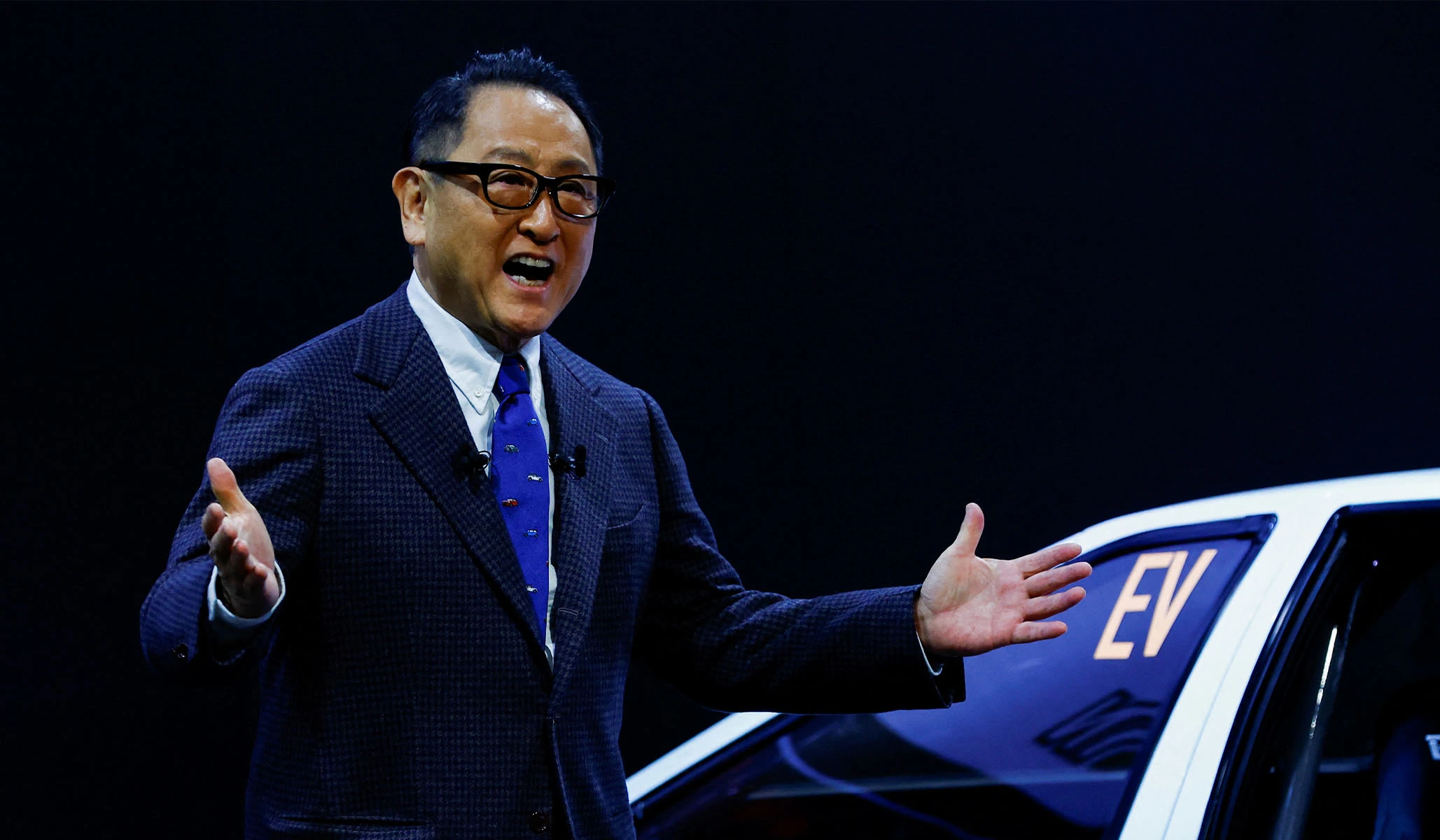Akio Toyoda, the CEO of Toyota and grandson of Kiichiro Toyoda, who started the auto division of the family business, has been skeptical about electric vehicles (EVs) for some time. He has questioned their environmental friendliness and highlighted the cost of decarbonization for the auto industry and consumers. In December 2020, Toyoda warned that a hasty ban on gasoline-powered cars in Japan could lead to the collapse of the current business model and result in the loss of millions of jobs. Proponents of EVs argue that they can be charged at night when electricity demand is low and can complement other green technologies like solar power.
Toyoda’s doubts about EVs have drawn criticism, but he maintains that he never said EVs are wrong, just that they may not be the only option. Toyota, known for its hybrid vehicles, plans to continue manufacturing hybrids for decades to come while also expanding its EV line. However, there is pressure from investors and proxy advisory firms like Glass Lewis to push for a faster transition to EVs. Glass Lewis has recommended that shareholders vote against Toyoda’s re-election as chairman, citing concerns about the independence of Toyota’s board.
The push for EVs has raised questions about the governance of companies and the influence of progressive investors and proxy advisory firms in shaping corporate policies. The focus on ESG (environmental, social, and governance) standards in investment decisions has led to a bias towards climate-related goals, potentially overshadowing the pursuit of financial returns. The pressure to conform to the trend of EVs has made it difficult for dissenting voices like Toyoda’s to be heard.
Despite the criticism, Toyota remains committed to offering a range of electrified powertrains, including hybrids, plug-in hybrids, all-electric, and fuel cell electric vehicles. The company argues that the overall carbon reduction achieved by hybrid vehicles over their lifetime is significantly greater than that of a single battery electric vehicle. However, the pressure to conform to the EV trend persists, with some shareholders seeking to oust Toyoda and demanding greater transparency regarding Toyota’s climate-related lobbying efforts.
The case of Toyoda and Toyota highlights the challenges faced by companies navigating the transition to EVs amidst increasing pressure from investors and proxy advisory firms. The governance of companies and the influence of progressive political goals on corporate decision-making are important issues to consider in the broader context of climate policy and the pursuit of sustainable transportation.

